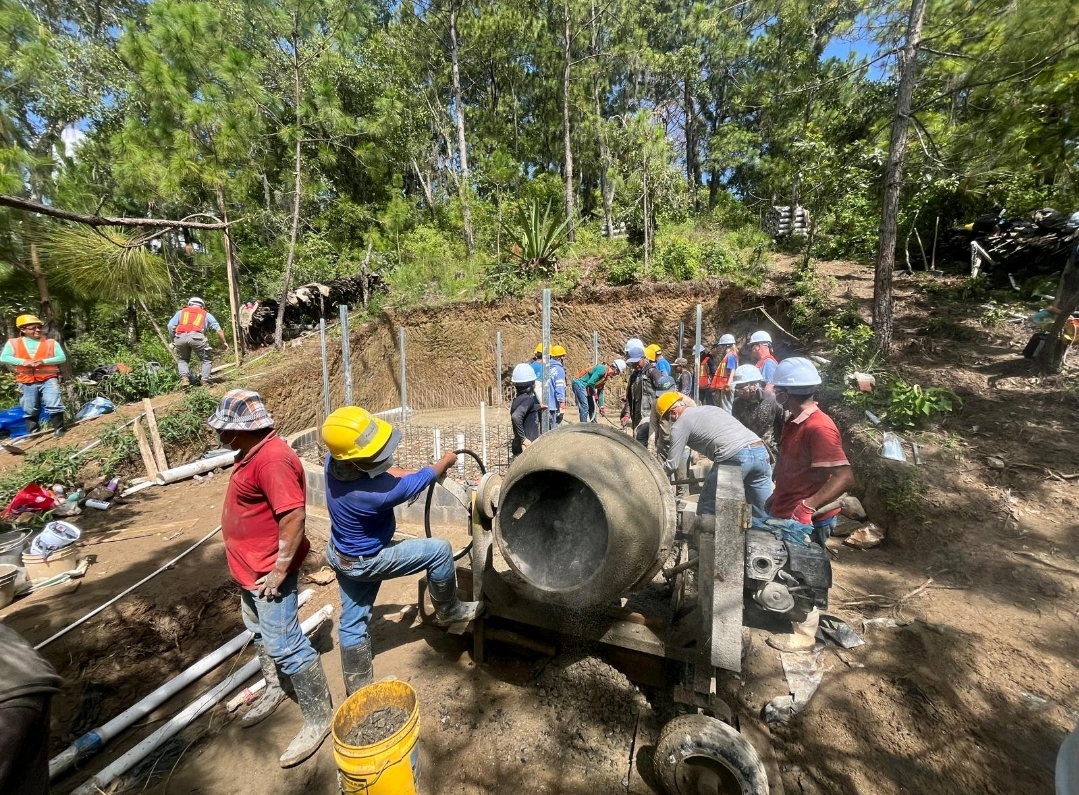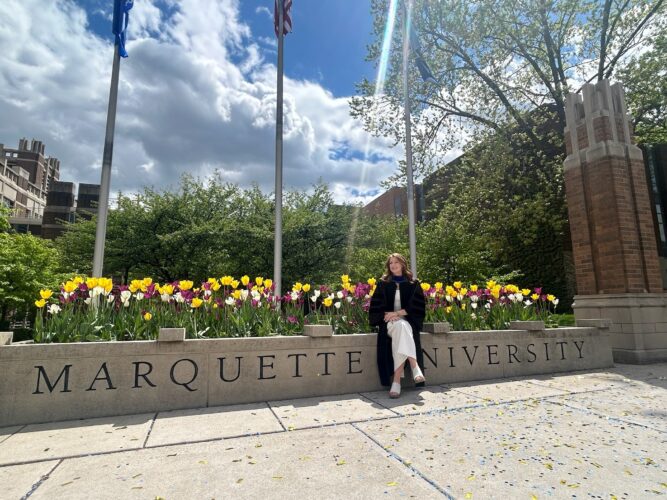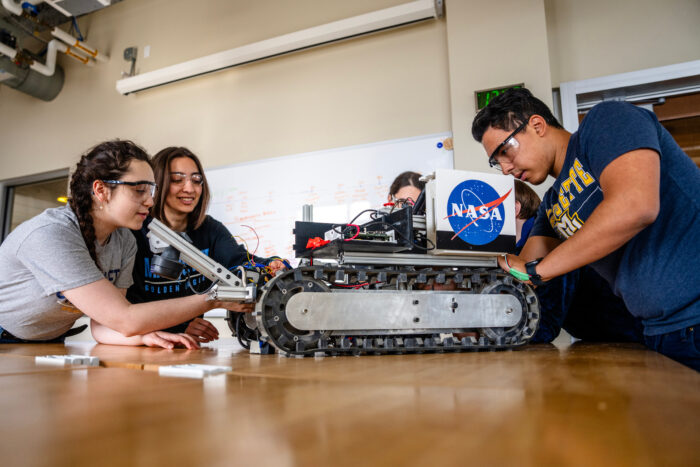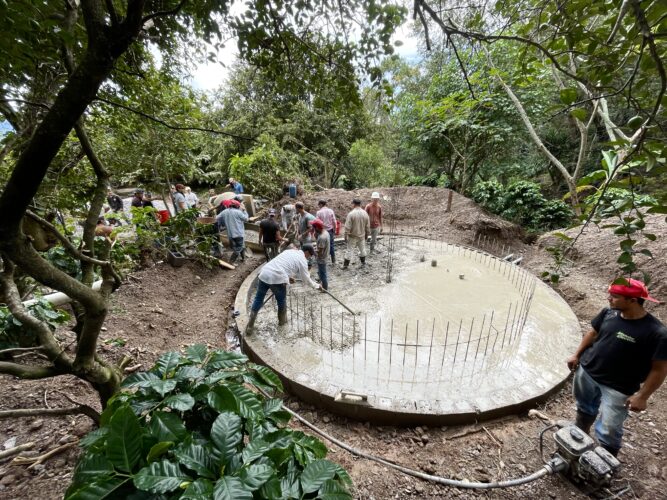When walking down Wisconsin Avenue on a typical mid-semester weeknight, most pedestrians will overlook the sliver of light coming from a garden-level window of Marquette’s Haggerty Hall. The building’s mostly dim basement houses custodial materials, a few heavier pieces of engineering research equipment, storage for the building’s many classrooms and, nestled within its passageways, a not-so-secret clubhouse. This underground headquarters is the base of operations for Marquette’s chapter of Engineers Without Borders, a student organization with a legacy of almost 20 years of leading and partnering on community-driven engineering projects in Central and South America. Students affectionately call the space the “EWB Bodega,” a nod to the storage structures built alongside in-progress construction projects in Guatemala.
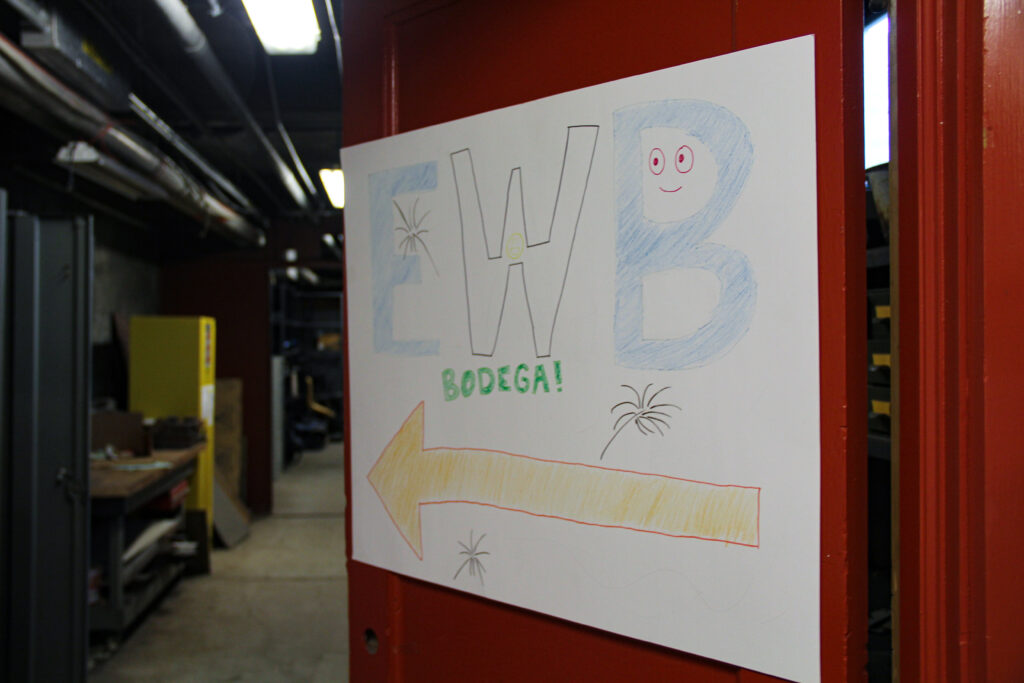
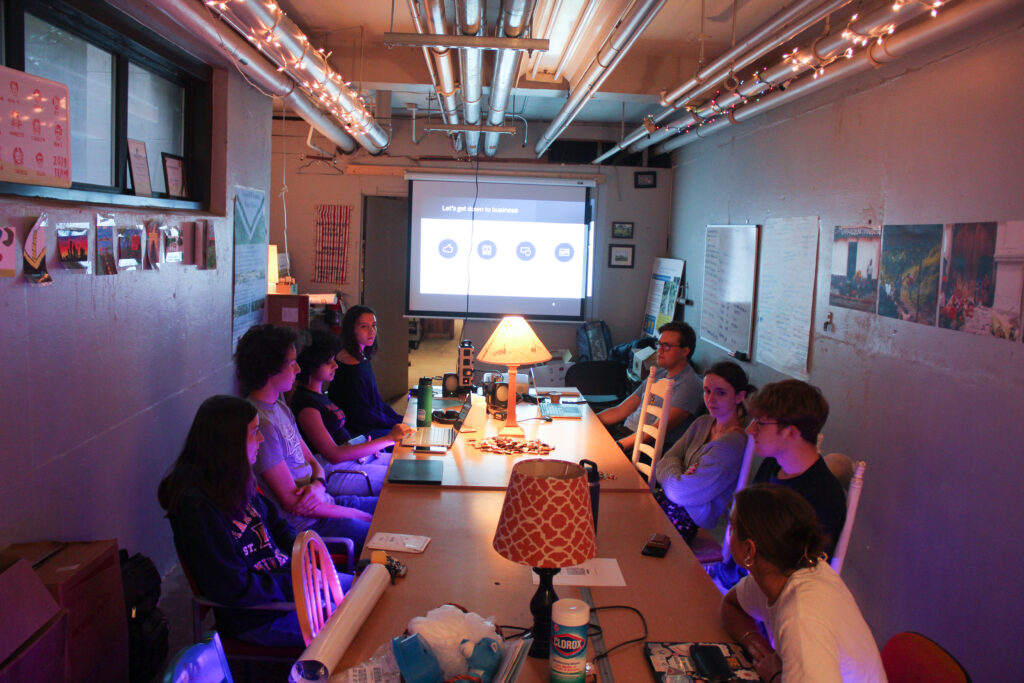
Established in 2005, the chapter has completed over 10 projects in multiple communities, mostly in Guatemala. These projects have included several clean water distribution systems, pedestrian bridges, a schoolhouse, utility cost-saving solutions for an orphanage, and an electrical system for an off-the-grid village. Photos, sketches, and mementos from these projects now line the concrete walls of EWB’s home base.
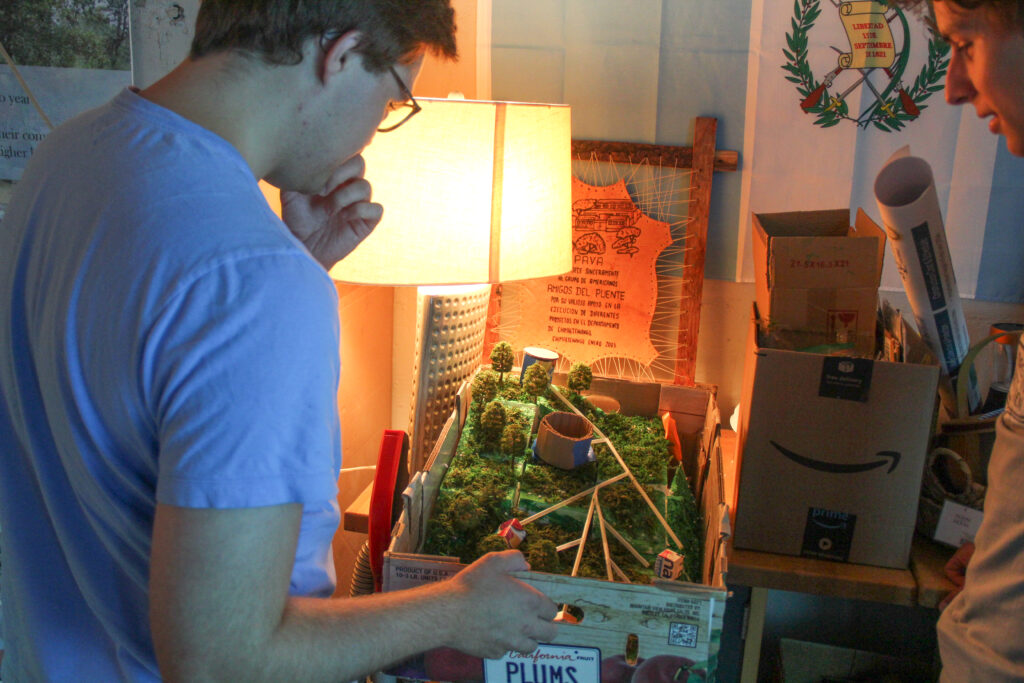
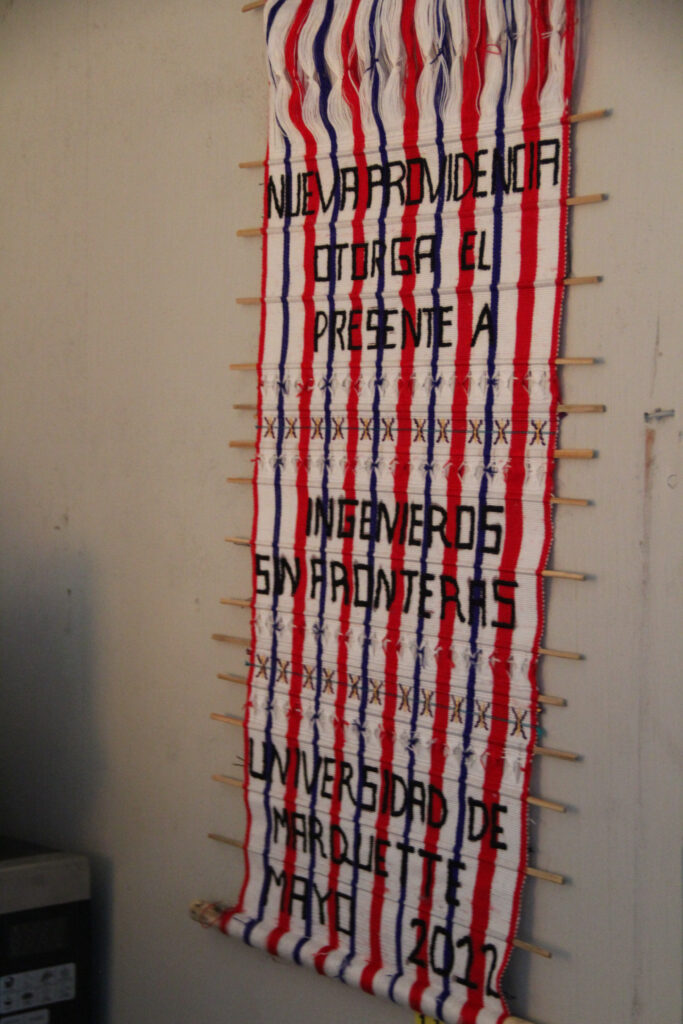
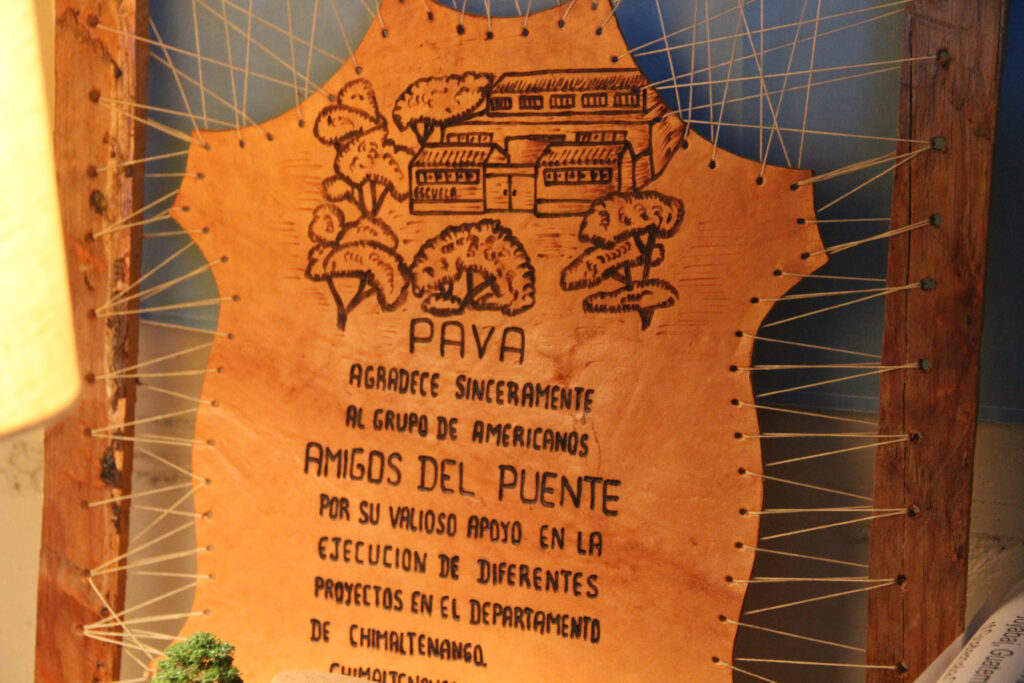
The students’ commitment to making a difference is steadfast. Mira Kahate-Desouza, a biomedical engineering major and vice president of Marquette’s EWB chapter, shares how EWB’s legacy drives its latest success. “I’m proud to be a part of an organization with such a strong track record, and the high expectations set by our predecessors provides the incentive we need to keep performing at that level,” she says. “In our latest work, we have the honor of working alongside communities to expand water access, and the experience is both extremely humbling and highly educational.”
This summer, 12 Marquette students traveled to the Tzitzil community in Guatemala to contribute to a drinking water system that will provide access to clean water to more than 500 people. Alongside community volunteers and local professionals, students helped build a water treatment tank and the conduction line connecting it to a distant spring.
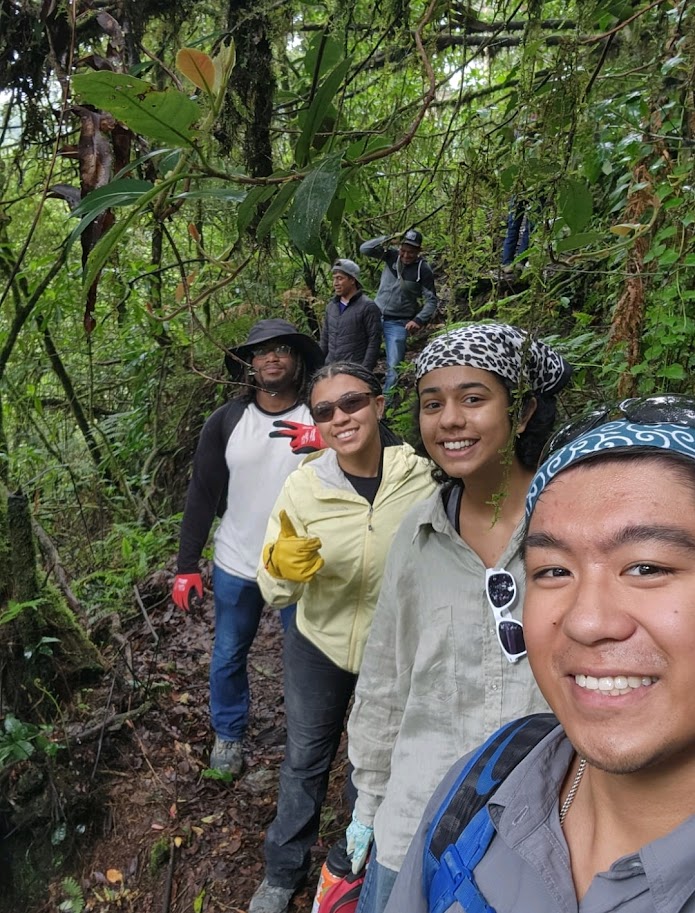
“Students regularly say these trips are a highlight of their education; it is an opportunity to see their work making a difference firsthand,” says Dr. Mark Federle, associate dean for academic affairs in the Opus College of Engineering and longtime faculty adviser for EWB at Marquette. “Students are expected to work hard and strive for excellence on-site because we know it is a privilege to work with these community members and learn from them, some of whom have been our partners for over a decade.”
Tying rebar, pouring concrete and digging foundations with community members and local engineering professionals were just a few of this year’s daily tasks. In the evenings and during meals, students and community members also shared stories, took turns prepping tortillas and occasionally found themselves in impromptu fútbol matches.
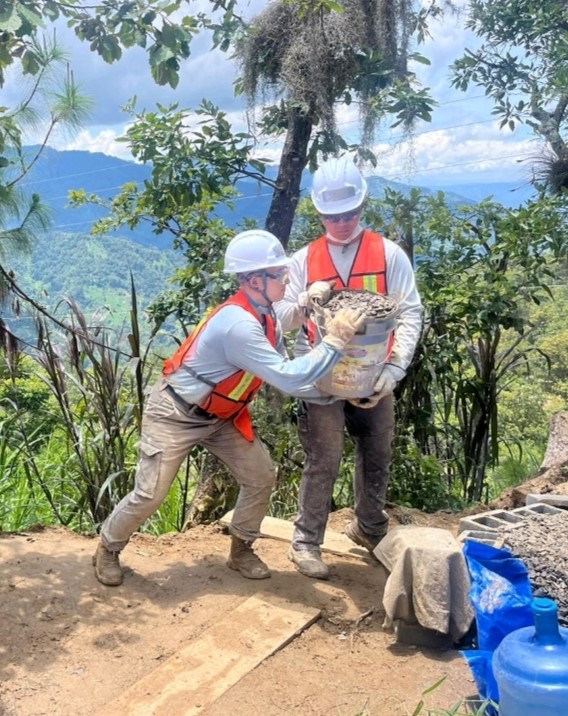
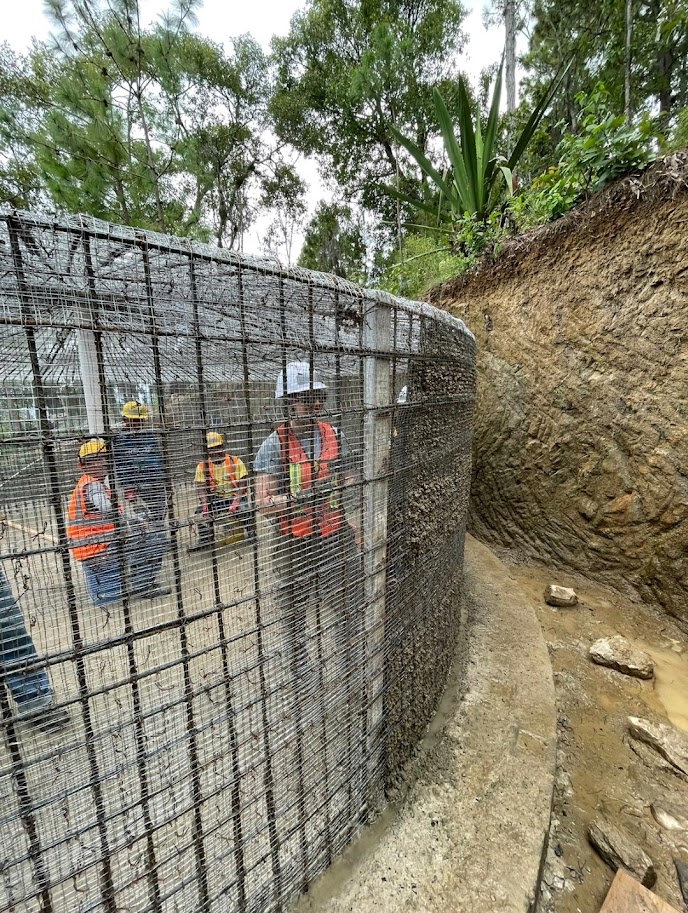
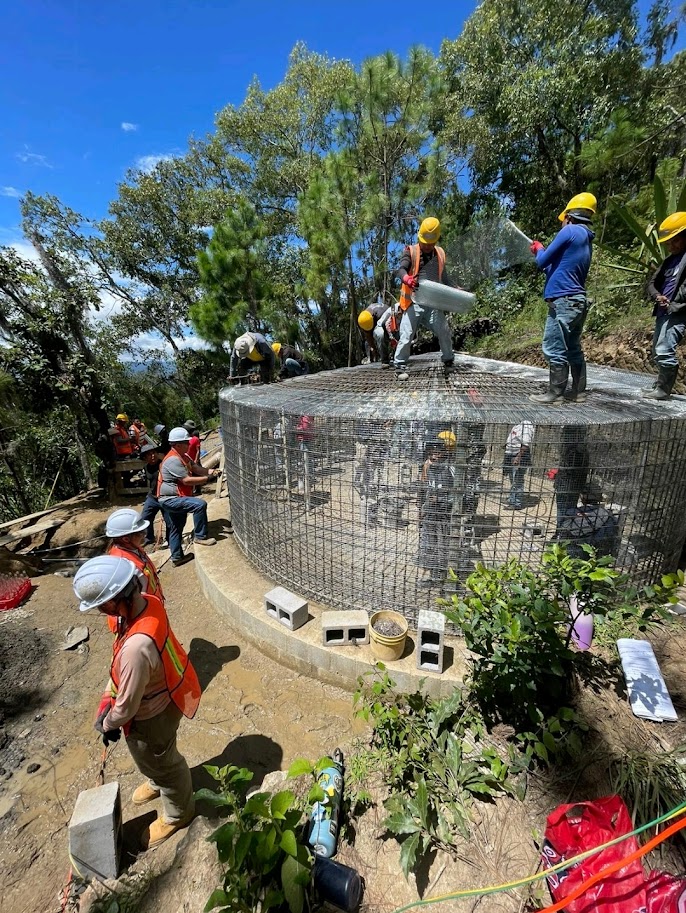
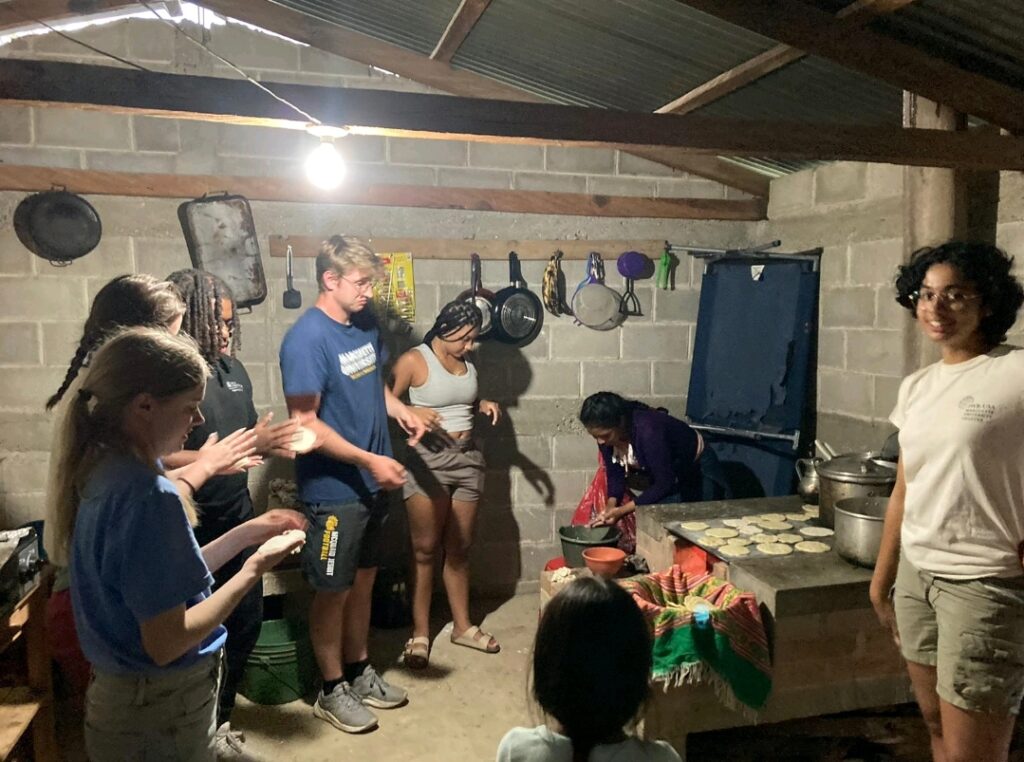
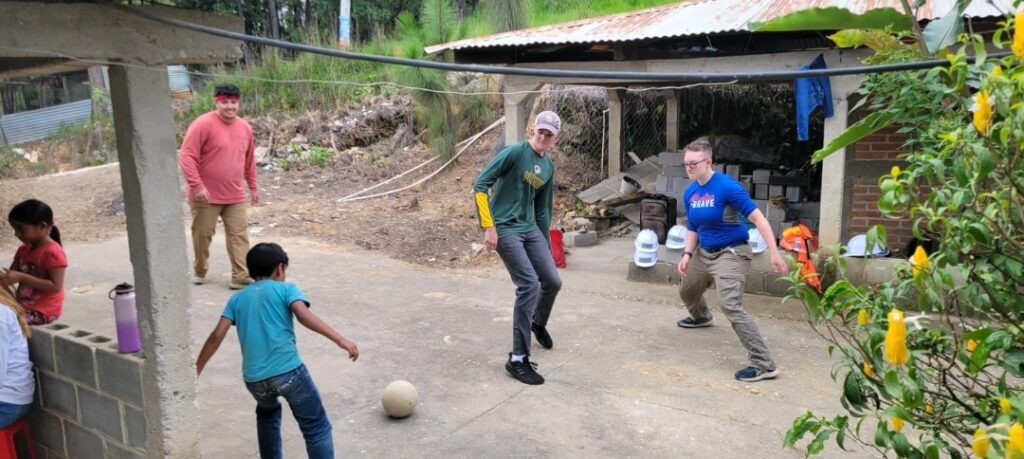
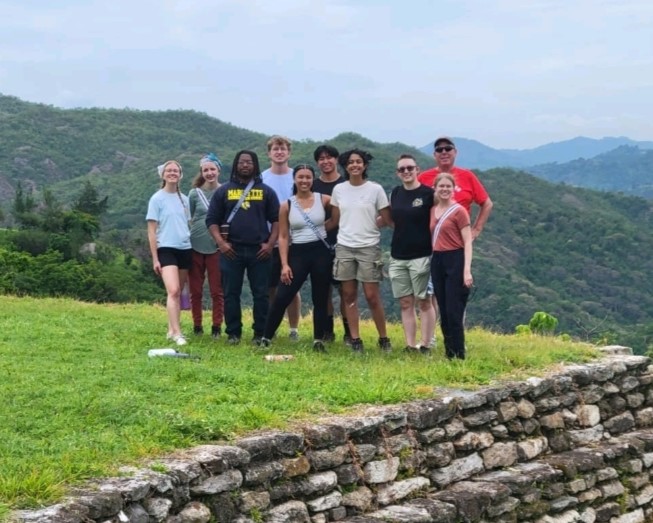
Ben Craighead, an environmental engineering major and president of EWB at Marquette, did not travel for this year’s implementation but shared how the Guatemala trips widen a student’s lens as a chapter member and as an engineer. “We often encounter projects we have previously designed and implemented, so there is definitely a connection to previous members, leaders and projects,” he says. The chapter routinely revisits previous projects for a review and to reconnect with those community members. And seeing a previous project fully implemented and quietly making a difference for a community offers a connection to the bigger picture of the chapter’s work, more than what photos in the EWB clubhouse can convey.
“EWB has provided me with new perspectives on how what we do as engineers can have such a profound impact on those in need,” says Craighead. “This has been by far the most influential organization I’ve been involved with at Marquette.”
Transformed by their time in EWB, the students take great care in sustaining the organization — for the sake of future students and future communities. Today, Craighead, Kahate-Desouza and their peers are hard at work on campus to ensure the chapter’s continued growth and impact. Fundraising, budgeting, new member recruitment and regular communication with partners locally and internationally is a year-round effort.
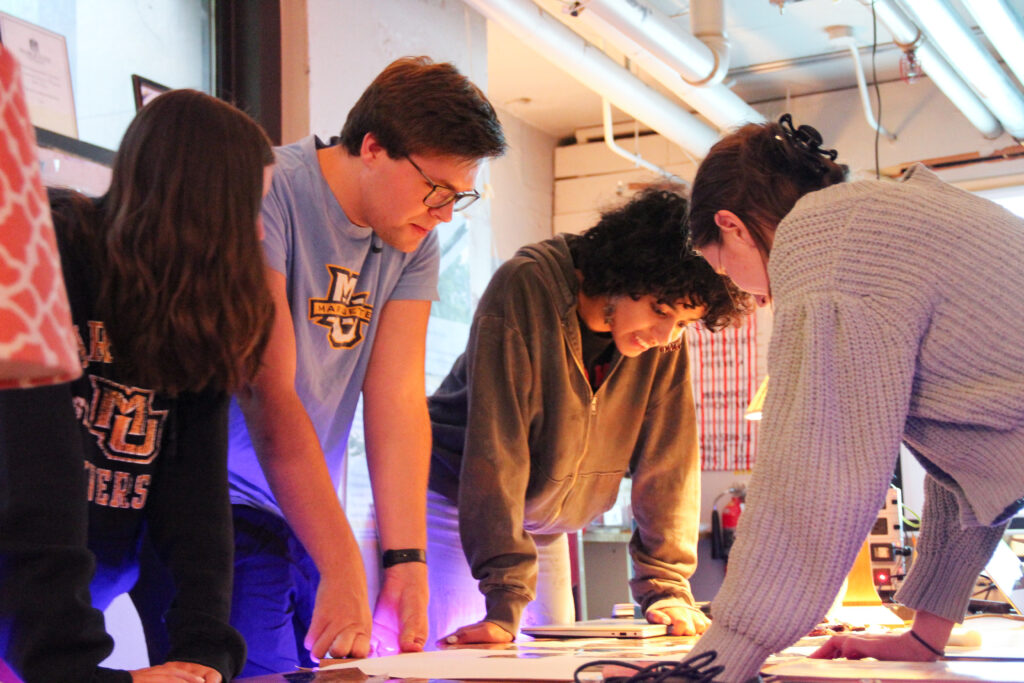
“If not for the generations of students who have done quality work before us, we would not have the opportunities we do now,” says Kahate-Desouza. “Our work relies on the trust with communities that has been cultivated for many years before us.”
With graduation always on the horizon for the chapter’s senior members, the students are also intentional about leaving the organization better than they found it and ready for the next generation of servant leaders.
“It is inspiring to see the students driving this organization over time to continue growing and adapting,” says Federle. “It is sort of a microcosm of the tradition of Marquette. People, technology, physical spaces — even what we’re wearing in photos — continue to change, but there is an underlying commitment to mission that is ever present.”
For now, passersby can expect to see a warm glow coming from EWB’s underground clubhouse as students gather for their next opportunity to serve together.
